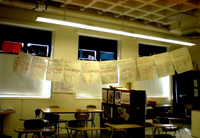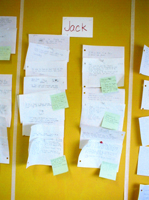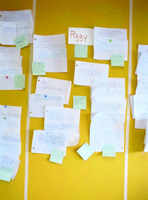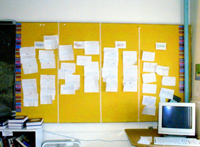Does dignity come from what we think/believe or how we act?
The following are a sample of students' responses:
"I think dignity is believing in something you've been inspired by. When your dignity is being threatened you must protest or stand up for your rights."
"In the concentration camp article I see signs of dignity by them just being there, admitting they were Jews and still praying to god and continuing their religion even though it meant the death of most of them."
"To preserve my dignity when it is threatened by others, I think about all the things that make me a good person."
"Most people try to maintain their dignity by threatening the person-who-was-threatening-their-dignity's dignity. This just leads around in a circle of insult and/or abuse."
"I preserve dignity by walking away so I won't get rude or angry with others or myself... my dignity helps me stay out of trouble."
"Some characteristics that make up my dignity and pride is my understandings and knowledge, my morals and what I strongly believe in is what gives me my sense of pride and self-worth."
"... people take dignity when they are independent and are able to take care of themselves. When they lose this ability then they lose that dignity/pride in being self-sufficient."
"Where I see people fighting to maintain their dignity is sometimes in school because other people try to bring some people down, but people need to know that they need to block them haters out and just live their life the way they want to."
"In Hiroshima survivors, I see signs of dignity when the survivors remember it and celebrate its memorial as a holiday every year. And I see loss of dignity when the survivors try to forget everything that happened."
"In my own life what gives me a sense of dignity is being able to be my own person and being able to stick up for myself."





